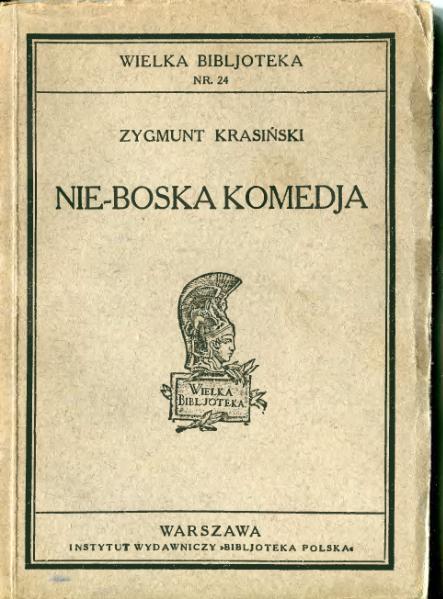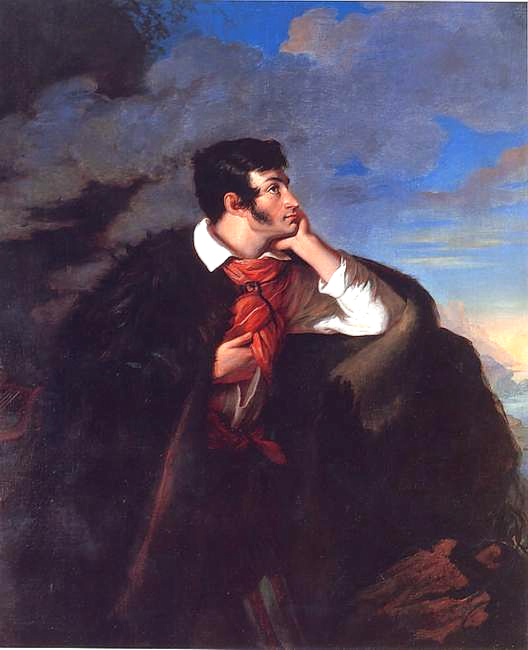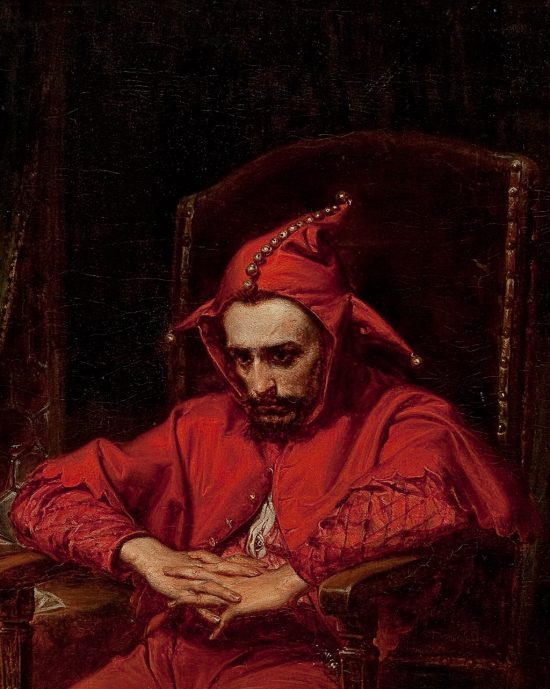
„That my ideal, reflex of The Beauty, Surpassed all other beauty on this earth?”
2025-12-28
Chinese art
2025-12-28Monica Mary Gardner : A study of Polish idealism

After the Rising of 1830, the story of Poland becomes that of the long agony of an idealistic and profoundly patriotic race, and of its protracted battle for existence. On one side, in the country itself, the prisons and the mines were the price the Pole paid for remaining a Pole. On the other, beyond the frontiers, there were the throngs of Polish exiles, dragging out lives of poverty, homesickness, and grief. The nation lived on ; but her life was mutilated, abnormal, unlivable.
And yet those years when Poland had no history except a monotony of suffering, no life except that life jealously preserved against proscription and penalty in the heart of every Pole, coincided with the splendid outburst of Polish literature. Unlike the three great empires of the world, Rome, Spain, and England, whose prosperity inspired their golden age of letters, it was the sorrows of Poland that gave birth to her great romantic song which, for its tragic power, its idealism, no less than its haunting beauty, ranks among the noblest productions of European art. Great as is the literature of Poland from an artistic point of view, it stands on another plane than that of literary value alone. In the first half of the nineteenth century, the Polish poets rose as the national teachers and moral leaders. They spoke to the people held in bondage by the bitterest facts of life, of the hope that would save them. The youths of Poland were prohibited from learning their nation's history, her spirit, her aims in the ordinary channels. They learnt them, therefore, of the poets who taught them the lessons of devotion and self-immolation for a native country ; whose writings kept alive the fires of patriotism, the Polish ideality and moral health, in young souls beset by peril. The national literature was no mere art, an element disconnected with the deep things of life, written for recreation or relaxation. It spoke straight to a stern purpose. It was a weapon, and as powerful a weapon as any that she could have chosen, in the cause of Poland. In this light the Polish poets regarded the poetry they gave their people. The literature they brought forth is, said Mickiewicz, speaking in the College de France, " above all things true. Each work is at the same time an action." * Poland's poets were more than her poets. They were her patriots.
The Pole in Poland might not read the masterpieces of his native literature in normal ways. These works were banned by the censor. They were published abroad, often at no little risk to the author. Colporteurs smuggled them into the country. Boys read them behind barred doors, with one of their number posted in the street to give the alarm should the police be near. After one hurried but intense perusal they were thrown into the fire. Prison and Siberia were the lot of those readers who were discovered. The possession of Mickiewicz's Ancestors sent a boy of seventeen to the dungeon, where, maddened with terror lest under the knout he should betray the names of his companions, he burnt himself to death. Hundreds of young men went to Siberia for having read Krasinski's Temptation. Often the only means by which the Polish poet could speak to his nation, with any degree of safety to himself or to the reader, was under the protection of an allegory or some sort of veiled meaning, where the Pole could read between the lines. Mickiewicz, in the heart of Russia, wrote an epic of the revenge of the Lithuanian, Konrad Wallenrod, on the Teutonic knights, the oppressors of his country. Every Pole knew for whom the Teutonic knights stood. Krasinski bade his compatriots abjure the weapons of vengeance, and work by love alone; but he did so under the figure of a Greek in the Rome of Heliogabalus. He warned the Polish women against marriage with the enemies of their nation ; and the language of his Summer's Night is so obscure as almost to fail in its aim. He sought to arm the Polish youth against those seductions of the Imperial Court that had laid their siege to his own soul in vain ; yet the elaboration with which he designedly disguised his point could not avert the consequences to his readers. Even in a poem as objective as Slowacki's Father of the Plague-stricken, the lamentation of the father over his children dying in the desert is said to represent the desolation of a bereaved country.
Poland, then, was assailed from every side. In anguish of mind her poets and her thinkers sought for some explanation of her tragedy to justify the working of Providence, to save their country from the atrophy and despair that would destroy her as certainly as all exterior persecution. So arose the dreams of a Polish national mysticism, I known by the name of Messianism. Its strange and mournful glory casts over Poland's poetry, in the days of Mickiewicz and Krasinski, a faint spiritual kinship with the prophecies of those who saw Sion irradiated with a mystical splendour as the adored of the nations. Poland, says Messianism, was rent asunder that her destruction might bring salvation to the human race. Out of the mysteries of pain and death are born new life and resurrection. Death is the condition of resurrection. The Saviour of mankind redeemed us by embracing death, and after three days in the grave rose again. So, in the political world, one nation has been signalled out to lay down her life. Her sufferings are the price by which the new and better epoch of humanity shall come about. She will rise gloriously to be the spiritual leader of that world, where all nations and governments will be united in Christ and rule in the spirit of Christ. Violence against that spirit of Christ was committed when so hideous a crime against man's rights as the blotting out of a free nation from the land of the living was perpetrated. The restoration of that nation will therefore logically be a return to the ideals of Christ, the first step to their realisation. Various of the Messianists looked to that future period as the third epoch, the reign of the Holy Ghost, thus presenting a curious link with the tenets of Joachim of Flora.
Pushed to its extreme limits, the doctrines of Polish Messianism tended to an exaggeration and a falsity of outlook that were likely to prove injurious to those for whose welfare they were intended. But in its best form, propagated by such a teacher as Krasinski, who made its promises conditional on each individual's purity of soul, it may be taken as a sublime spiritualization of national suffering. The workings of Providence were made clear. The dignity of a great calling was conferred upon a downtrodden people. The Poles were given an end for which to strive. The light of hope was shed over the dark places of grief.
" You all know, my brothers, that we were born in the womb of death," says Krasinski in his prose preface to Dawn, " Hence the eternal pain that gnaws your hearts ; hence the incertitude that has become your life. But every end contains already in itself the successive beginning ; the day of death but precedes the hour of wakening. Look closely, and the signs of death will suddenly change for you into the signs of resurrection. Our death was necessary ; necessary will be our resurrection ; and the Word of the Son of Man, the eternal word of life, shall be shed through the social circumference of the world. By our very nationality crucified on the cross of history will be manifested to the conscience of the human spirit that the political sphere must be changed into a religious sphere. The Lord in the whole political sphere, where hither to He was absent, will be present ; and the vessel of His providence to this end will be no other than the Polish nation."
" One of the two — either the blessed future of humanity is forfeited, or the condition of its fulfilment is the life of Poland."
This idea of the chosen race is the keynote of ' the great Messianistic poetry of Poland. As in the Hebrew prophets, Jerusalem is the mystic city, the object alike of patriotic and spiritual passion : so the prophet poets of Poland looked towards their country, not solely as the earthly home for which they pined with the human longing of the exile, but as the transfigured heavenly mistress of the soul. Poland is the instrument of God's future favours. She is set apart, therefore, and consecrated. Thus we have Mickiewicz drawing up a manual of religious guidance for those whom he regarded as the apostles of the new civilization. His Books of the Polish Pilgrimage, with their curious blending of Biblical flavour, almost homely detail, and the yearning of a man whose face was set to a Jerusalem on a far-off horizon, were addressed to exiles to whom he would not suffer the name of exile to be given. For he would have men know by their demeanour that they were pilgrims in whose hands lay the future of a hallowed country and a new race. Thus we have Krasinski apostrophizing Poland as " The holy one," " Holy Poland." She is no longer to him merely a native land. She is his faith, his idea (Dawn). He will liken, to mark the great capital difference, his nation to but one other : Jerusalem, who fell because she spurned the love that would have saved her {Psalm of Good Will). " The Jerusalem of our return for which we sigh," is the language in which Mickiewicz expresses to a friend the weariness of his banishment. " O God of Israel," prays Severvn Goszczynski ; " Thou Who for forty years led him by the way of victories and pain, through pathless deserts to the promised land, behold to-day Israel of the new covenant, the Polish nation, travels to her promised land. Forsake her not, O Lord, strengthen her with Thy grace. Still lead her, as till now Thou ledst her by Thy girdle till, fed by the blessed word of life Thou gavest her, she, in the strength of youth, fulfils her road. And lo ! this year may be the year of her espousals. And I, who lift these prayers to Thee to-day, pray if only for one moment I may be at my people's bridal feast " {The Prayer of a Poet). And the poet who watched the fires of the incendiary blacken his native Galicia placed the expression of his grief on the lips of a Jeremias, lamenting over the desolation of the chosen city (Kornel Ujejski, The Complaints of Jeremias).
The poetic symbolization of Poland takes differing guises. She is the mother, weeping for her sons. She is the great heavenly archangel of Krasinski's vision, crowned with the purple of her sorrows, whose eyes are of the eternal blue, whose brow flashes with the lightning of God, before whom the future new-born ages to whom her suffering has given their being cast down their wreaths in homage. She is — again and again — the beloved dead, sleeping in a grave from which she will rise again. The last word of Messianism confers on her the lineaments of a Christ of the nations, dying on the cross of expiation for the sins of humanity (Mickiewicz, The Ancestors, Part III.) A less usual conception is Bohdan Zaleski's repentant Magdalen {The Spirit of the Steppe). But behind all these types there is always the same figure of one beautiful and haloed by grief ; inexpressibly dear to the heart of him who wrote ; the one who, in Krasinski's dreams, calls* him, " and I went forth and I go, I know not where, but that voice I will follow if needs be even to the end of the world " (The Dream of Cezara). If on one hand Poland is the ethereal, star-encircled image of a mystic's desire, yet she is at the same time the living love, spoken of in the passionate and endearing tones of human affection.
It is scarcely necessary to insist upon the patriotic character of the nineteenth century Polish literature. Devotion to a native country is one of the most strongly marked features of the Polish nature. Moreover, the lives of Poland's poets were, at the time of which we are speaking, linked with the national cause in an exceptional manner, difficult of realization by those whose lot is cast in a land where tradition is the patriotism of freedom. There was not one of the poets in the great period of Polish literature whose daily existence was not ravaged with the personal afflictions that the public tragedy had brought upon them. They were nearly without exception living in exile, penury, loneliness, suspense. Grinding poverty, domestic trouble, grief at his absence from his Lithuanian forests, whitened Mickiewicz's hair before his time. Slowacki, parted for ever from an adored mother, wandered from country to country, beholding in the ruins of Greece the likeness of another land, his heart wrung as he watched the sun set over the Mediterranean by the sadness and the homesickness of the Pole (The Grave of Agamemnon. Hymn). The one craving of Bohdan Zaleski, the poet of the Ukraine, was that he might see again the steppes that had nursed his childhood, if but to breathe his last there ; and he died far away from them after half a century of exile. Gaszynski's prayers met his mother's in their mutual loneliness on the Christmas Eve which they could spend together no more (Constantine Gaszynski, To my Mother on Christmas Eve). He lived to hear of her murder by Russian soldiers at her door. From his nineteenth year till his death at the age of fortyseven, Krasinski bore a tragedy bitterer than exile, on which his lips were sealed. The heart-sickness of the wanderer, pining to return, runs in mournful undertones through the poetry of Poland, especially in that of Mickiewicz and Bohdan Zaleski ; but it is a larger grief than individual deprivation that gives its tragic accents to Polish literature. Poland's national poetry must of necessity be profoundly sad. " I and my country are one," says Mickiewicz in the Ancestors. " My name is Million, because I love millions and for millions suffer torment. I look on my unhappy land as a son upon his father broken on the wheel. I feel the sufferings of the whole nation, as the mother feels within her bosom the sufferings of her child." Or again, the charge laid upon Irydion, the symbolization of Krasinski's national thought, is : " Thou shalt see thy love transpierced, dying ; and the sorrows of thousands shall be born in thy one heart." These words of Poland's two greatest poets may be taken as typical of the vocation and the attitude of the leaders of her literature. There is here no room for egoism. The affliction of their country was to her poets as their own, more than their own. Their poetry is written in the tears of their nation. It is the cry of an inconsolable distress, of a pain personal and intimate as that of a son mourning for the dearest of mothers, a lover for the beloved of his heart.
And yet, whatever its deep melancholy, there is in Poland's patriotic and prophetic song neither pessimism nor despair. Its hope is as eternal as its grief ; victorious over circumstance, however adverse. The idealism, the immense vitality of the Polish race by which it has preserved its life, speak through the literature that is the direct outcome of national calamity, whose themes are built upon a nation's tragedy. Nor is this hope like that figure familiar in English art of one clinging to the last string of a broken lyre. It is rather a radiant certainty, unjustified by a single outward token, rising unshaken in the midst of disaster and defeat, glowing with the mysticism which is the inheritance of the Pole.
Monica Mary Gardner
Adam Mickiewicz on the Ayu-Dag, by Walenty Wańkowicz, 1828




